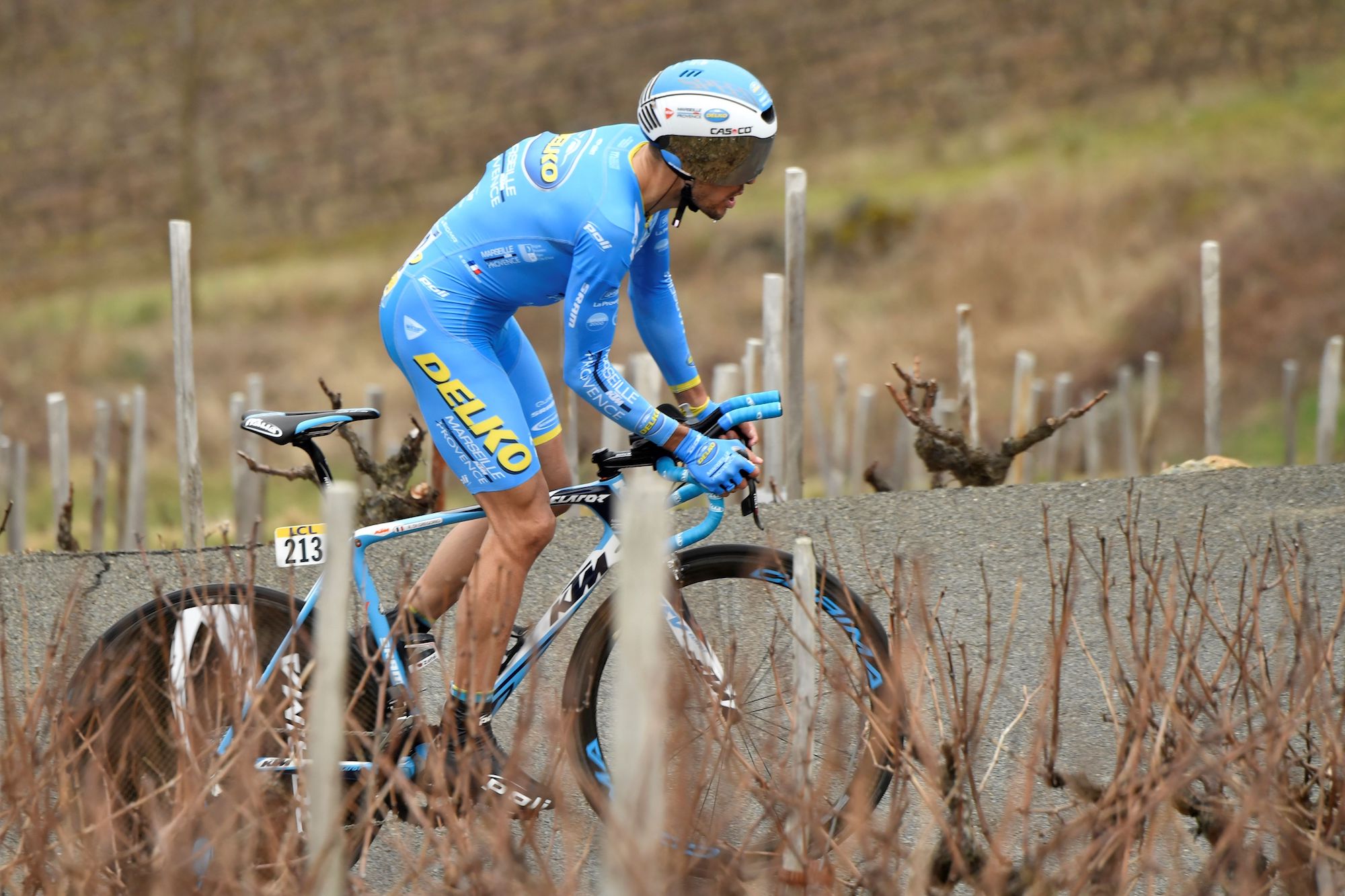French rider suspended for four years following 'super-EPO' positive test
Rémy Di Grégorio was caught doping at Paris-Nice 2018

Rémy Di Grégorio (Philippe Lopez/AFP via Getty Images)
The latest race content, interviews, features, reviews and expert buying guides, direct to your inbox!
You are now subscribed
Your newsletter sign-up was successful
French rider Rémy di Grégorio has been suspended for four years after he was caught doping at Paris-Nice in March 2018.
The Delko Marseille Provence KTM rider tested positive for traces of darbepoetin after the fifth stage, a drug which is also known as "super-EPO".
Di Grégorio was provisionally suspended following the positive test in March 2018 before his B-sample also came back positive. The UCI has now announced he will be banned for four years, until March 7 2022, when the now 34-year-old will be 36.
Darbepoetin is closely related to EPO (Erythropoietin), which stimulates the production of red blood cells. Darbepoetin is more effective, however, as it stays in the body longer.
During the 2012 Tour de France Di Grégorio was arrested for alleged possession of doping products but was later acquitted when it turned out to be vitamins. He was then tracked by police for a year, who found evidence during that time that Di Grégorio had purchased one hundred needles and eighty syringes over the internet, as well as a 500mg bottle of glucose, which can be used to mask doping. He was given a one-year suspended prison sentence and a €2,000 fine.
>>> Thomas De Gendt targets taking yellow jersey on stage one of 2020 Tour de France
Di Grégorio turned pro in 2005 with FDJ, before spending a year with Astana in 2011, then Cofidis in 2012, before signing for Delko Marseille Provence KTM where he spent five years up until his suspension in early 2018.
The latest race content, interviews, features, reviews and expert buying guides, direct to your inbox!
His best career results included GC victories at the Tour de Taiwan in 2014 and the Tour of Bulgaria in 2013, as well as a stage win at Paris-Nice in 2011 when he rode away from the peloton with 13km to go on stage seven to take a solo victory.
Star riders such as Thibaut Pinot and Tom Dumoulin have expressed concern that current anti-doping efforts are being affected by the coronavirus lockdown. Anti-doping organisations have acknowledged the difficulty of testing athletes in the current conditions but have tried to reassure both athletes and fans that measures are being taken to defend clean sport.
In March, the World Anti-Doping Agency announced many programmes around the world had been suspended or reduced, including athlete testing.
"In recent years I have had few tests anyway, but I haven’t been tested at all in recent months," Dumoulin told Sporza. "I understand that there are now generally few checks. If the Tour de France gets closer, it will have to be resolved and checks will have to be made again."
Jonny was Cycling Weekly's Weekend Editor until 2022.
I like writing offbeat features and eating too much bread when working out on the road at bike races.
Before joining Cycling Weekly I worked at The Tab and I've also written for Vice, Time Out, and worked freelance for The Telegraph (I know, but I needed the money at the time so let me live).
I also worked for ITV Cycling between 2011-2018 on their Tour de France and Vuelta a España coverage. Sometimes I'd be helping the producers make the programme and other times I'd be getting the lunches. Just in case you were wondering - Phil Liggett and Paul Sherwen had the same ham sandwich every day, it was great.